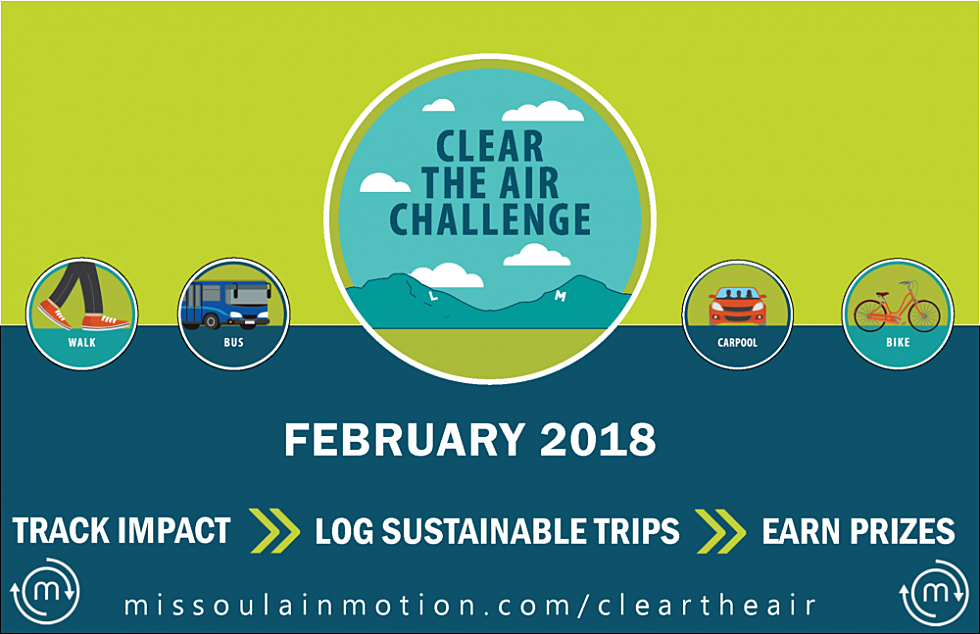
Sustainable Missoula: Make a difference; leave the car at home every now and then
Hopping in our vehicles every time we need to make a trip is a part of our daily routine that we seldom think twice about.
Yet every time we drive, we make a choice with real and measurable impacts on the health of our bodies, our community and our planet.
If we take a moment to consider our options and their impacts before reaching for the keys, together we can enact momentous change.
One-quarter of all trips in the U.S. are one mile or less, yet nearly all of them are taken by car. Meanwhile, American lifestyles are becoming increasingly sedentary and obesity rates are climbing.
Transportation is the second-highest expense for American households after housing, costing an average of more than $9,000 annually. A family could save $8,500 per year by avoiding replacing a second vehicle.
In addition to the obvious health benefits of starting the day with an active commute, opting out of a morning solo drive also influences mental health: reducing stress, increasing workplace productivity and combating social isolation.
A survey of 4,000 workers found that 25 percent of those who drove alone felt their productivity was negatively affected by the stress of their commute, compared to none of bicycle commuters.
Vehicle emissions also have significant local air-quality impacts, particularly during the winter months. Inversions in Missoula trap harmful pollutants close to the valley floor, keeping them in the air we breathe for days, or even weeks, at a time. Long-term exposure to poor air quality results in increased rates of heart and lung disease, and ultimately, shortened life spans.
In an effort to improve individual and community health, Missoula has committed to ambitious goals for shifting the modes by which we travel. The Activate Missoula 2045 Long Range Transportation Plan calls for reducing the drive-alone commute rate by half and tripling the number of people commuting by bike, foot and transit by 2045.
Attaining such ambitious targets will require open minds, progressive public policy and significant improvements to the built environment. We have a long way to go, and it won’t happen overnight.
Fortunately, the foundations are in place: zero-fare transit service, an extensive trail network and widespread ridesharing opportunities that offer convenient and affordable sustainable transportation options – empowering us to leave the car out of the equation when possible.
Transportation is a critical piece of the puzzle in addressing climate change. Last year’s first Greenhouse Gas Emissions Inventory prepared by Climate Smart Missoula and the city of Missoula found the transportation sector to be the leading contributor of carbon emissions, responsible for 37 percent of Missoula’s total emissions.
Our current transportation behaviors are not only emptying our wallets and harming our health, they are jeopardizing the future of the planet.
For the past 20 years, Missoula in Motion has helped individuals discover all of their transportation options, encouraging Missoulians from every walk of life to rethink the ways we get around and realize the benefits associated with sustainable travel. We understand that many people face barriers in choosing to bike, walk, bus, carpool or vanpool, and by no means do we expect everyone to adopt a car-free lifestyle. It is all about doing what you can, when you can.
Even a 1 percent reduction in the number of vehicle trips can have a much more significant impact on traffic congestion and emissions. Imagine the difference if every person managed to ride the bus to work or carpool with a neighbor just one day a week.
Missoula In Motion’s Clear the Air Challenge aims to inspire Missoulians to choose sustainable transportation options during the time of year when we face the most barriers. For the month of February, individuals can earn prizes by logging sustainable trips and tracking their collective impact on diverting carbon emissions.
New carpool matching features make it easier than ever to search for and connect with neighbors or commuters who live along your route.
Now is the time to make the move to sustainable transportation and unlock all the benefits that go with it. If we can start to see commuting differently, we can pave the way to making Missoula a happier, healthier and more sustainable community for years to come.
Sustainability Events:
Feb 1-28: The Clear the Air Challenge runs through the end of the month. Join online via Missoula in Motion.
Feb. 7: Solar-Ease workshop at the Missoula Federal Credit Union’s Brooks St. Center from 6 – 8 p.m., with presentation at 6:30.
Feb 8: “To the Ends of the Earth” documentary screening at the Roxy Theater at 7 p.m.
Feb 13: “Climate Change in Missoula: From Statistics to Strategies” at the Missoula Public Library, 7pm.
Katherine Auge is a program specialist at Missoula in Motion. This column is part of a 2018 weekly Missoula Current series, Sustainable Missoula, which highlights community sustainability efforts.
